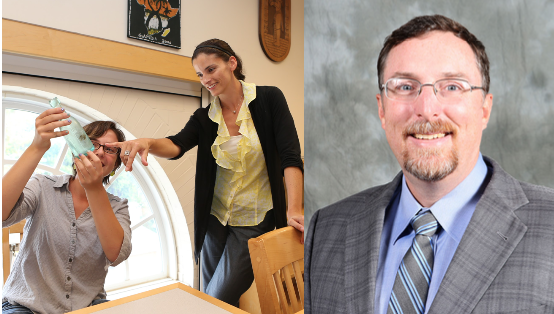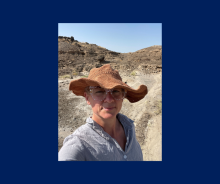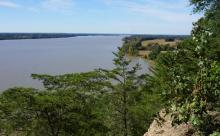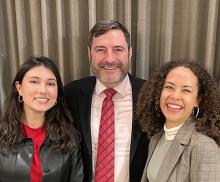
Liza Gijanto, associate professor of anthropology, and Randy Larsen, professor of chemistry, were recently awarded an NSF Research Experiences for Undergraduates (REU) grant focused on archaeological investigations of colonial Maryland. The $368,278 grant will fund a multi-year research program for numerous students from across the U.S.
Each summer during this NSF-REU program, 12 undergraduate students and their mentors will investigate the role of country estates in shaping Maryland society from the mid-17th until the early 19th century. This archaeology REU program is novel in terms of research focus, combining traditional field and laboratory techniques with cutting-edge collection management methods (archaeometry, mapping, dating, photogrammetry). Participants will also receive instruction in ethical curation that includes interpretation in both scholarly publications and museum exhibition. The eight-week program will be hosted by St. Mary’s College of Maryland, with field work occurring at the Cremona Estate in Mechanicsville, Maryland, and collections management and conservation training done in collaboration with the Maryland Archaeological Conservation Laboratory (MAC Lab) in St. Leonard, Maryland. The three-year project was scheduled to run in the summers of 2020, 2021 and 2022. However, due to the coronavirus (COVID-19) pandemic, Gijanto and Larsen are working with NSF to delay implementation of the project by one year.
This comprehensive and innovative REU program will provide undergraduates with a first-class research experience in archaeology and state-of-the-art training in the latest scientific and methodological approaches to archaeological fieldwork, artifact curation, materials analysis, curatorial interpretation and public engagement with scholarly content. Gijanto and Larsen also seek to highlight the ongoing archaeological collections crisis, which is largely due to the separation of archaeological fieldwork from collections management and the lack of planning and resource allocation for the proper care of materials once they have been excavated. To investigate the research question and provide solid training in archaeology, students will learn: 1) the use of archaeological, archival, and spatial data to discern the role of country estates in shaping Maryland society; 2) the relationship between generating a collection and maintaining it; 3) archaeometry and materials characterization; and 4) public engagement through research presentations, publications and museum exhibition. This combination of research and state-of the art training available to early career, underserved students is currently unique among U.S. field schools.



